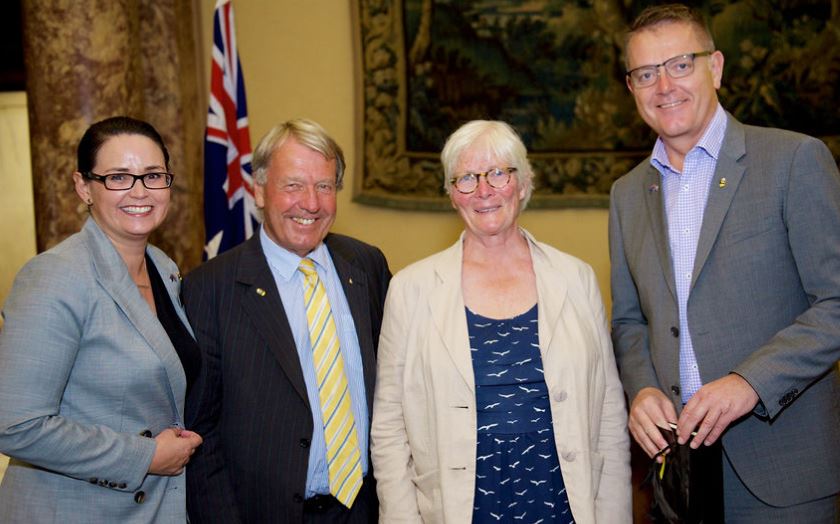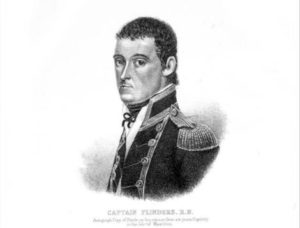
Flinders University laments the passing of Lisette Flinders Petrie, the great-great-granddaughter of Matthew Flinders, who has died in England after a short illness.
As a descendant of the University’s namesake, Lisette represented her family on several visits to Flinders University, including a 1974 symposium to celebrate Matthew Flinders’ 200th birthday and the 2002 bicentenary celebrations for the encounter between Flinders and Nicolas Baudin in April 1802.
On the former occasion, she presented a talk on the Flinders family which was later published in Matthew Flinders: The Ifs of History (1979), according to Flinders University researcher Dr Gillian Dooley, who worked for many years at the University’s Special Collections.
More recently, Lisette was special guest at the launch of The First Wave: Exploring Early Coastal Contact History in Australia, which was held by Flinders University in Australia House, London, in June 2019.
“Lisette was a generous friend to the University, not only providing her time and expertise on the family history over the years, but also donating some valuable items that she had inherited from her great-great-grandparents,” says Dr Dooley, a co-editor of The First Wave with Flinders University writer and lecturer Associate Professor Danielle Clode.
 These items include a manuscript letter written by Matthew Flinders to his wife Ann in October 1802, and a rare print of his portrait, left, incorporating the parole he provided to the Governor of Mauritius on his release from detention there in 1810. These are among the most treasured items held in the Flinders Collection in the University Library’s Special Collections.
These items include a manuscript letter written by Matthew Flinders to his wife Ann in October 1802, and a rare print of his portrait, left, incorporating the parole he provided to the Governor of Mauritius on his release from detention there in 1810. These are among the most treasured items held in the Flinders Collection in the University Library’s Special Collections.
Lisette was inspired not only by her great-great-grandfather, but also by her grandfather, the famous Egyptologist Sir William Matthew Flinders Petrie (1853-1942), the only son of Matthew and Ann’s daughter Anne.
Lisette studied astronomy and taught the subject for the Open University and Sussex Institute for many years. She visited Egypt several times and became fascinated by representations of the sky in temples, tombs and coffins, which led her on to further study.
She enjoyed music, singing in a choir and occasionally playing her great-great-grandfather’s flute which she inherited.
“In our last email exchange, just last month, we discussed music in Matthew’s life and she sent me some interesting details about the flute,” says Dr Dooley, who helps coordinates the lunchtime music series at Flinders University.
Lisette is survived by her three daughters, Martha, Rachel and Susie, and her grandchildren.

